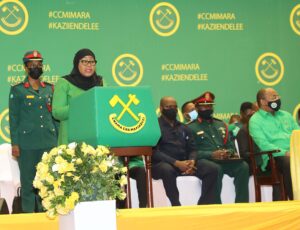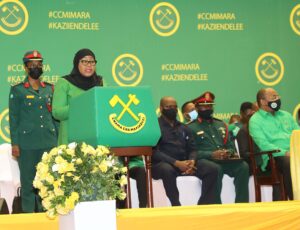CLAIM: Men can now pay lobola only if they want to as bride price is now a moral decision rather than a mandated legal necessity under the New Marriages Act.
SOURCE: The Chronicle
VERDICT: Misleading
The not so new Marriage Act – having commenced in September 2022 – brought with it a number of changes.
Among these changes has been the removal of unregistered customary marriages.
Zimbabwe now recognises 3 types of marriages – the civil marriage, the customary marriage and the qualified civil marriage.
A claim that under the new act, lobola is now optional and a moral decision rather than a legal one went viral recently on social Media platforms.
The claim first appeared in The Chronicle and was then picked by other media houses as well as users on social media platforms.
Many claimed that unlike in the old act where lobola was ‘compulsory’, it was now optional.
Some claimed that lobola had never been compulsory even in the old act.
However, this is an incorrect reading of both the old and new Acts.
Under both the new and old acts, lobola forms(ed) part of the customary marriage processes and was not required for civil marriage.
Under the current act, all marriages require:
- Parties to be above 18 years
- Free and full consent
- Parties not related in any degree of relationship specified in the Criminal Law Code – 75(2)
These three, and not being contracted in any other marriage, are the only requirements for a civil marriage to take place.

However, for a customary marriage, in addition to the three:
- A marriage officer in a customary law marriage shall put to either of the parties to a proposed marriage or to the witnesses any questions relevant to the identity or marital status of the parties to the proposed marriage, to the agreement relating to marriage consideration (lobola or roora), if any, and to the existence of impediments to the marriage.
- At the solemnisations of every customary law marriage there must be present, in addition to the marriage officer and the parties to the marriage, two witnesses, one for each party to the marriage, being a relative who, under the customary law of the community concerned, is recognised as the primary family witness for the marriage.
- If the marriage officer is satisfied— that the intended husband and wife freely and fully consent to the marriage; and that from the two family witnesses it is apparent that customary law formalities have been met; and that no lawful impediment exists to the proposed marriage; he or she shall proceed in terms of section 31 and such marriage shall be a valid marriage contracted according to customary law.
This means that a customary marriage can not proceed with lobola unpaid if the customs of the parties involved requires that lobola be paid.
The third type is the qualified civil marriage. A qualified civil marriage means a union between a man and a woman, not being a union registrable as a civil or customary law marriage. It also requires age of majority, consent and to not be within the prohibited degree of relationship.
Additionally, a minister of religion who is a marriage officer may, after ascertaining the wishes of the parties as embodied in a marriage contract and otherwise, solemnise a qualified civil marriage between a man and a woman in accordance with the procedures recognised by the faith of which the marriage officer is a minister, if, at the date of such solemnisation;
- a) the religion of which the marriage officer is a minister permits a man to be married to more than one woman; and
- b) both parties are members of the faith of which the marriage officer is a minister, and have been such members for a period of at least 12 months before the date of the proposed solemnisation of the qualified civil marriage; and
- c) the man and the woman are not parties to an existing civil marriage with each other, or the man is not a party to an existing civil marriage with another woman.
Conclusion
The claim that ‘Men can now pay lobola only if they want to as a bride price is now a moral decision rather than a mandated legal one’ is misleading. Payment of lobola is mandatory for those who want to register a customary marriage if in their customs lobola forms part of the marriage formalities. While civil marriage are excluded from lobola payments (remaining optional), customary marriages are not thus excluded.











